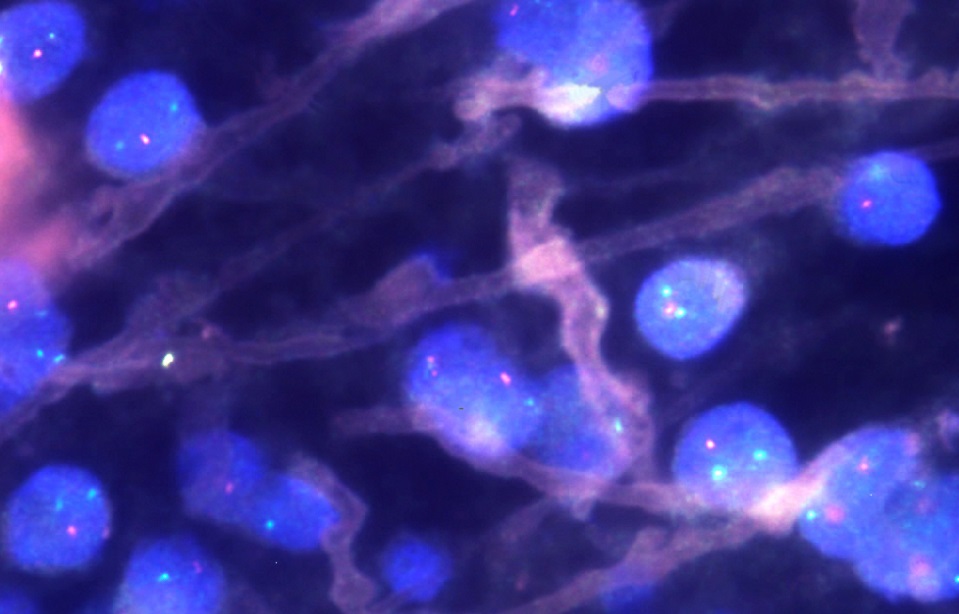
Brain UK study ref: 21/004,
Lay summary,
Project status: Active
Spatial transcriptomic analysis of glioblastoma for assessing extrachromosomal DNA impact
Prof Charles Swanton and Dr Imran Noorani, Francis Crick Institute
The most common type of brain cancer in adults is called glioblastoma (GBM), for which patients survive for only 14 months despite maximum treatment. There is therefore an urgent need for newer and more effective therapy. GBM cells are good at finding ways to escape any treatments given to destroy them; they can do this by switching genes on and off, and by their interactions between other GBM cells and ‘normal’ immune cells that support the growth of these cancers. How they achieve this is poorly understood and may be linked to special circles of DNA (extrachromosomal DNA, ecDNA) in GBM cells. This ecDNA behaves differently to normal DNA and allows certain genes to be switched on to such high levels that they adapt to cancer therapy. In this project, we will analyse stored GBM tissues using a new type of technology called Slide-Seq, which looks at genes switch on and off in GBM cells at very high resolutions such that even genes in individual cells can be distinguished. This technology will further enable us to look at how these DNA circles may be influencing tumour cell growth and interactions with other cells in GBM. We will do this by studying what genes are switched on in these DNA circles and how this influences interactions between cells compared with GBM cells that do not have DNA circles. Our project should provide new insights into the biology of GBM that will drive future research into new therapeutic avenues for this devastating cancer.
